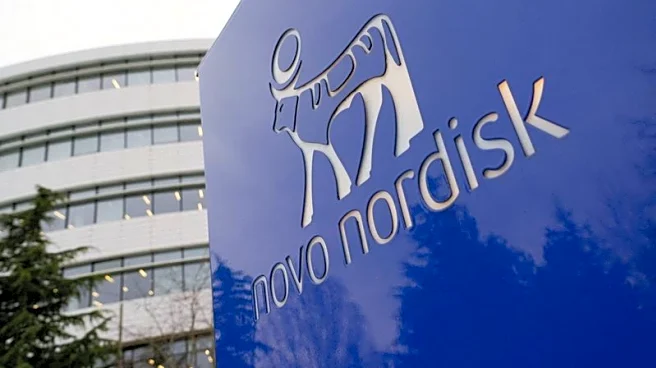What is the story about?
What's Happening?
Kraft Heinz has announced its decision to split into two separate companies, a decade after its merger created one of the largest food companies globally. The split comes as consumers increasingly veer away from processed foods, opting for less processed options and private-label brands amid economic uncertainty. One company will focus on sauces, spreads, and seasonings, retaining brands like Heinz Ketchup and Kraft Mac & Cheese. The other will manage brands such as Oscar Mayer and Lunchables, led by current CEO Carlos Abrams-Rivera. This strategic move aims to address the challenges posed by changing consumer preferences and declining sales.
Why It's Important?
The split is significant as it reflects Kraft Heinz's response to shifting consumer preferences and economic pressures. By separating its operations, the company aims to focus resources on distinct product categories, potentially improving performance and shareholder value. This move highlights the broader trend of major consumer brands reevaluating their business structures to adapt to market conditions. The decision underscores the challenges faced by large conglomerates in maintaining growth and relevance in a competitive market, and may influence similar decisions by other companies facing similar pressures.
What's Next?
Following the split, Kraft Heinz will need to navigate the complexities of managing two separate entities, each with its own strategic focus. The company will likely face scrutiny from investors and analysts regarding its ability to execute this transition effectively and deliver on its promises of improved performance. Additionally, the split may prompt reactions from competitors and industry observers, who will assess the impact on market dynamics and consumer preferences. Kraft Heinz's leadership will need to demonstrate that the separation can indeed enhance shareholder value and drive growth in a challenging economic environment.
Beyond the Headlines
The decision to split Kraft Heinz raises questions about the viability of mega-mergers and the assumption that economies of scale always lead to success. The challenges faced by Kraft Heinz highlight the importance of understanding consumer trends and adapting business models accordingly. This development may prompt other companies to reconsider their strategies and explore similar structural changes to remain competitive. Furthermore, the split could have implications for the food industry, as it may influence how companies approach innovation and product development in response to evolving consumer demands.
















